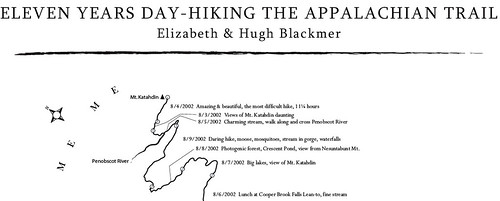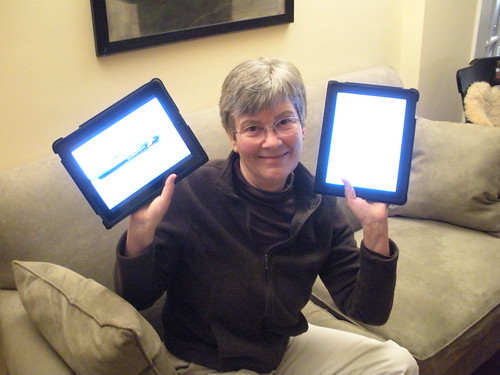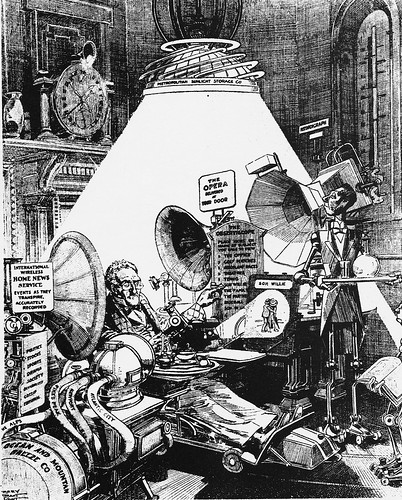I’ve had 3 days with the iPad now, and it’s been as exhilarating as other brushes with new technologies. I think of the first few days with the TI-Pro in 1984, HyperCard on the Mac in 1990, my first work with Web browsers and HTML in 1993, and the beginnings of podcasting in 2004: in each case, pennies dropped one after the other as I tried this and tried that and articulated and then found the answer to the next question… Doc Searls really nailed it with his summary of the iPad (for which read ANY new technology) as “an accessory to your own intentions”. It’s not the DEVICE we should be judging, but rather our engagement with it, and its effects upon our imagination. Often enough, what you EXPECTED as the outcome pales next to what actually happens, and it’s the unanticipated that’s the important consequence. Case in point: for several years Kate has been working on a map summarizing the Appalachian Trail adventure that occupied Betsy and me between 1992 and 2003. Here’s the topmost bit:
The whole map is more than 15 feet long when it’s printed out, and we’ve been wrestling with how to display it. It’s too big to hang on the wall, and clumsy to roll out onto the floor and crawl around on to read the details summarizing each segment hiked, but as a pdf on the iPad it’s absolutely perfect: you can pan and zoom and really explore, just by waving your fingers over the screen. And that experience leads one to thinking about map displays of many kinds, and other features that might go into map apps for iPad and successor devices. Not something we imagined when the iPad first arrived, and it was realized only after I’d figured out a clear path to move pdfs (via Google Documents) from computer to iPad.



